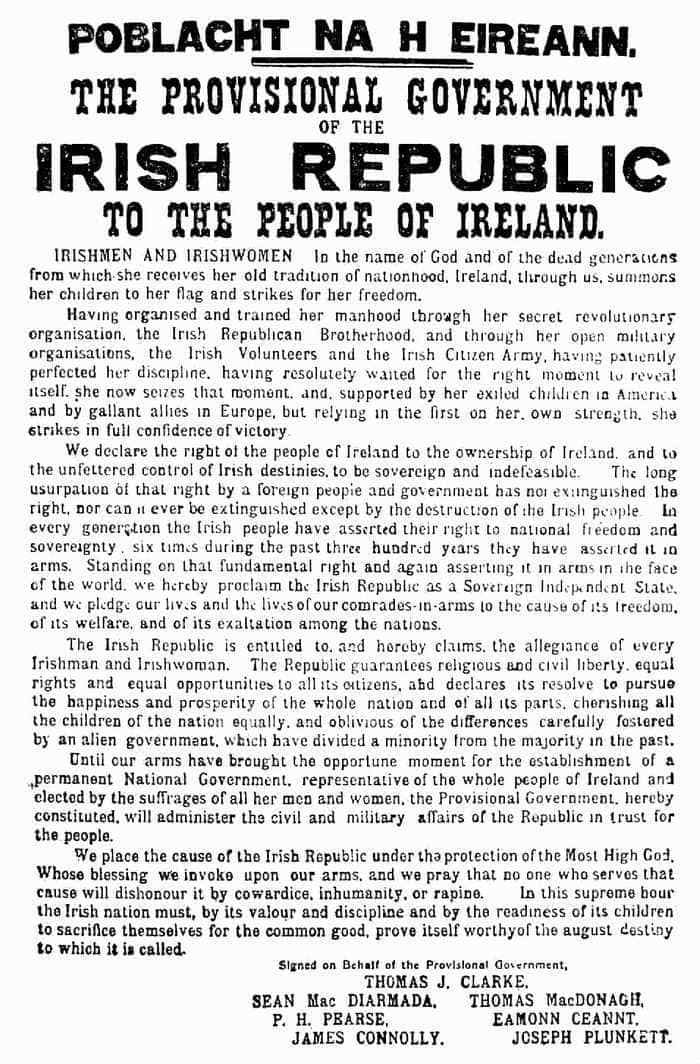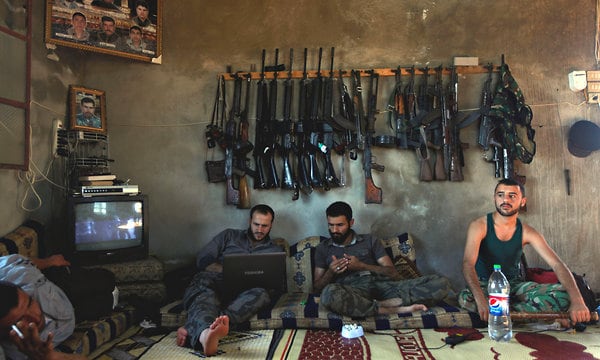Courtesy of Wikimedia Commons.
My DBQ assignment will revolve around various revolutionary movements in the 20th century. Students will examine primary documents, such as the image above, and attempt to draw conclusions about the factors that contribute to what I will consider “revolutionary moments,” or the boiling over of revolutionary sentiments in a national context. To begin, I will introduce the Proclamation of the Irish Republic. Beginning on Easter 1916, the Irish revolution proved to be the initial unraveling of the British Empire, as they waged war against the central powers in World War I. Unpopular both at home and abroad, the Irish revolution gained momentum over the course of five years, until the signing of a cease fire in 1921 between the government of the United Kingdom and the newly formed Republic of Ireland. War then broke out between Pro-Treaty and Anti-Treaty forces, once they were forced to confront the reality of a divided nation, as outlined by the treaty signed with the British government.
The Irish revolutionary period raises many interesting questions regarding revolution in the 20th century. As most revolutions pitted an independence movement against a larger, imperial force, one must ask who controls the revolution? In the case of Ireland, a revolution did not unite the country, but in fact divided it along lines that persist to this day.
I would ask students to compare the Irish revolution to Mexico’s in later units. Though I have yet to delve deeply into the history of the Mexican revolution, the parallel timelines should elicit some interesting comparisons. Fortunately, both revolutionary periods produced a surfeit of sources that capture the sentiments of the time.
Courtesy of the Library of Congress.
Questions:
Who controls a revolution? The revolutionaries, or their opposition? When and why do revolutions begin? How does the Proclamation of Irish Republic compare to other documents of independence, namely the US Declaration of Independence? Does a revolution necessarily need an enemy? How have revolutions changed in the 21st century?
Courtesy of The New York Times.



